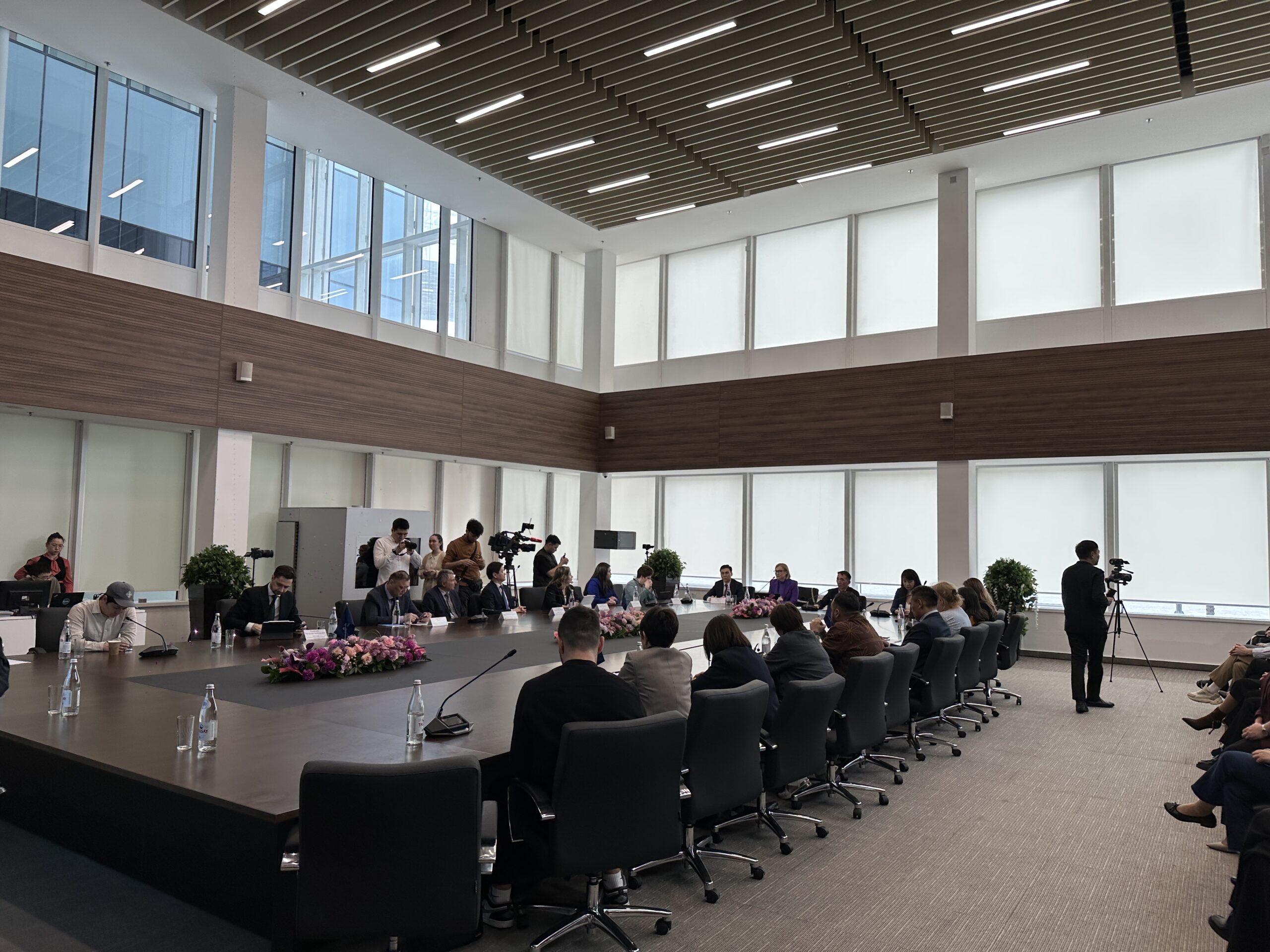ASTANA – The TechnoWomen Artificial Intelligence (AI) Forum kicked off on April 17 in Astana with a roundtable on opportunities and risks posed by the problem-solving systems. In a hybrid format, international experts, government officials, and private sector representatives reviewed the far-reaching implications of the use of modern technologies and addressed international practices in their legal regulation.

The forum will last through April 19. Photo credit: The Astana Times.
Kazakhstan and Central Asian countries have embarked on a path of digital transformation. The rapid development of AI underscores the importance of establishing a professional industry community to analyze best practices in technology application and coordinate common initiatives in Central Asian countries in the long run.
In her welcoming remarks, Yelena Sedyh, the chairwoman of the TechnoWomen Strategic Council, noted that the event has brought together individuals who “significantly influence the development of AI, including representatives of international organizations, specialists directly involved in AI development, and those responsible for ensuring cybersecurity.”

The roundtable on AI opportunities and risks. Photo credit: The Astana Times.
The TechnoWomen non-profit organization unites and empowers women in technology, aiming to expand opportunities and foster female entrepreneurship in Central Asia’s digital landscape.
“We first heard the AI term in the 1950s. It has had the time to mature and to become what it is today. In the last few months, we are observing a rapid pace of change. At the same time, it is worth noting that the majority of technologies have been around us for a long time,” said the Global Business Line Lead for Digital Data Infrastructure at the World Bank Group Sharmista Appaya.
According to Appaya, new trends and opportunities in AI depend on a rapid pace of adoption, enhanced decision-making and intelligent automation, the governments’ perception of AI, and ethical AI development.
Risks and challenges, which need particular regulation in AI development, include an increase in digital divide, privacy and cybersecurity concerns, unrepresentative training datasets in different parts of the world, the black box problem (the lack of transparency and interpretability of AI algorithms), and high energy consumption.
“We have less than 10 years to achieve the United Nations (UN) Sustainable Development Goals (SDGs). AI holds great promise for achieving many of these goals, from climate change mitigation to ensuring access to education, affordable healthcare, and gender equality,” said Kseniia Fontaine, the business development and operations manager at the International Telecommunication Union (ITU).
At the same time, the expert noted the need to be vigilant while implementing digital solutions.
“There is the possibility of negative impacts on achieving the SDGs. For instance, job displacement is a major risk as a result of automation, as well as biases in data sets, ethical concerns, and problems in ensuring security,” added Fontaine.
Natalia Myagchenkova, chief regulations risk officer at Yandex, shared some insights into the foreign experience in legal regulation of AI.
“There are specific laws that prohibit discrimination in the use of AI. There is also an opinion that legal regulation is evolving in areas with technological hubs, such as Illinois, Colorado, New York, and California,” she said.
Myagchenkova brought an example of a new regulatory system designed to guide AI innovation in Canada. “The issuance of declarative laws followed by explanatory regulations is actively discussed in Canada within the development of the Artificial Intelligence and Data Act (AIDA),” she noted.
In June 2022, the Canadian government tabled the AIDA as part of Bill C-27, Canada’s Digital Charter Implementation Act. The AIDA represents an important milestone in ensuring that Canadians can trust the digital technologies they use daily. The design, development, and the use of AI systems must be safe, and respect the values of Canadians.
The European Union (EU), she noted, follows a “specialized and narrow regulation in the development of AI.” As for China, Myagchenkova said that the initial step was to implement a comprehensive set of measures. The main provisions, according to her, compel developers to ensure compliance of their models with national values and state priorities.
During a meeting of the National Council for Science and Technology on April 12, Kazakh President Kassym-Jomart Tokayev set goals for the advancement of science and technology. He underscored the need to create an ecosystem that provides shared access to data and technology infrastructure, as well as to use creative approaches in AI development.
